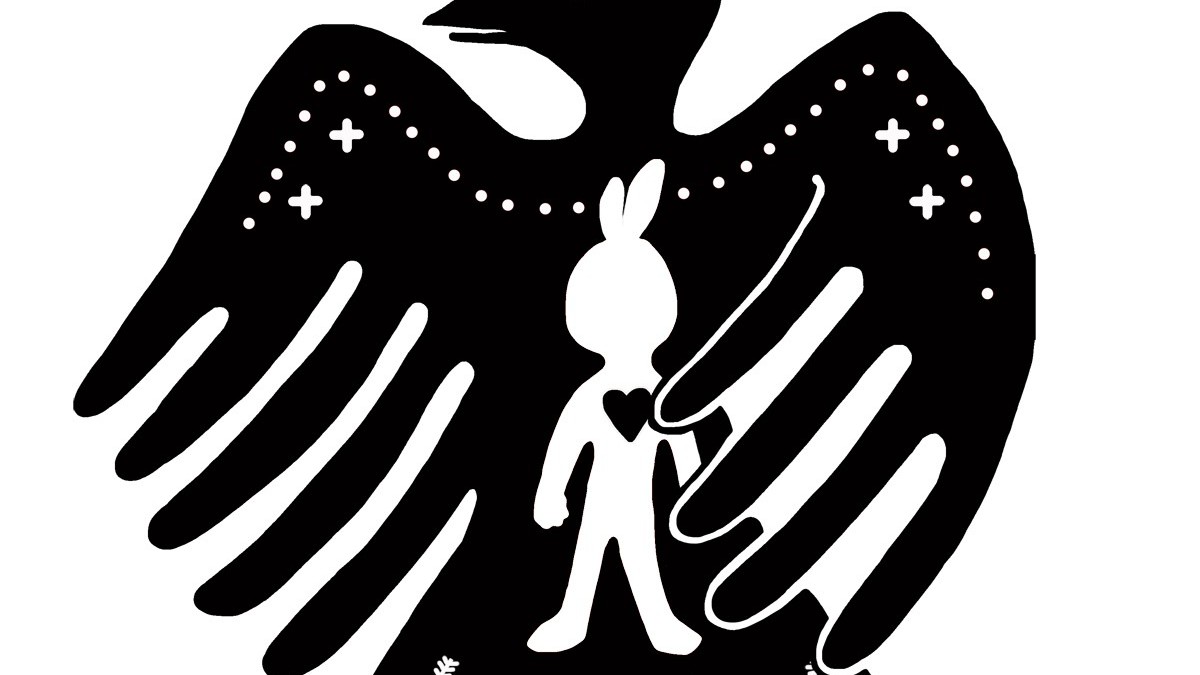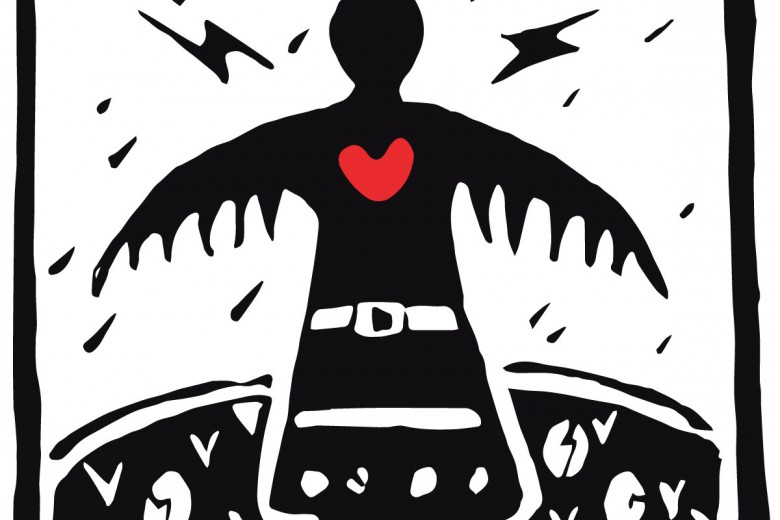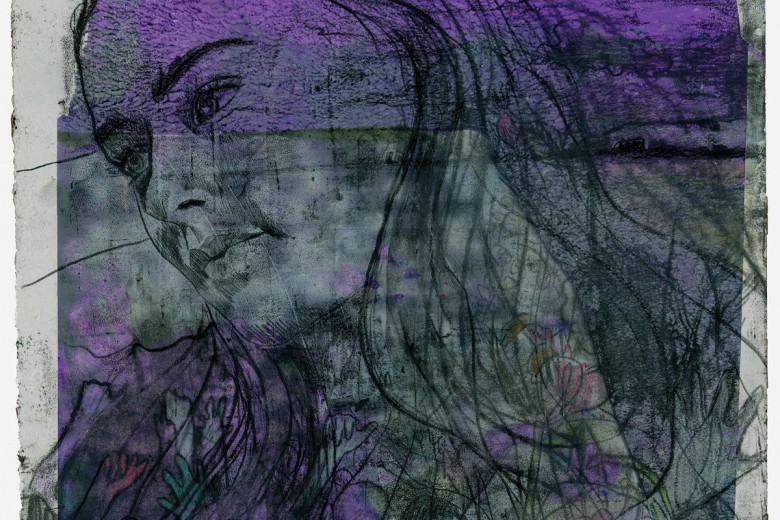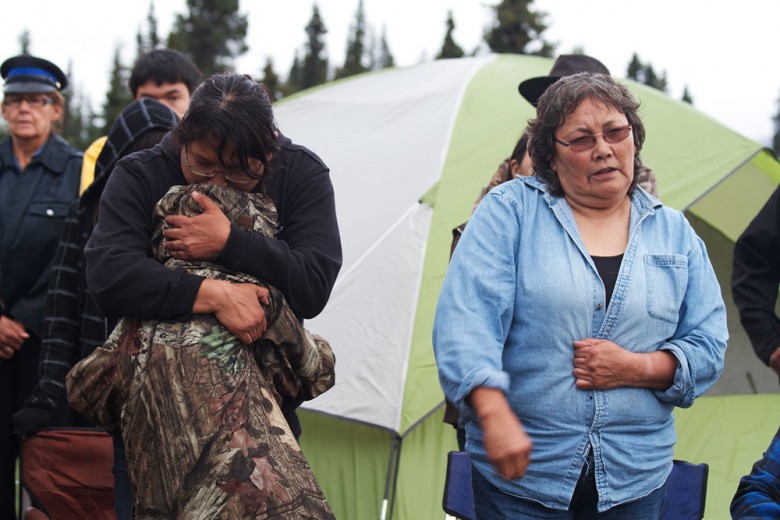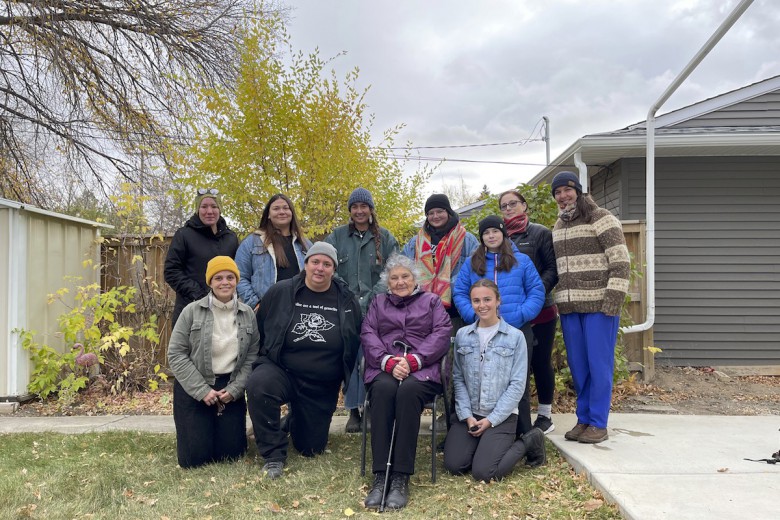Read the article, “‘Indigenizing’ child apprehension,” about reforms to Ontario’s child welfare system and the Indigenous families fighting to bring their children home.
Anishinaabe Families Talk Back held a writing workshop at the Greater Sudbury Public Library this fall, where individuals who had been or were still involved with Children’s Aid came together to share their stories and practise writing about them. Theatre artist Sarah Gartshore and I facilitated. We couldn’t begin by smudging because the library was not able to guarantee that we wouldn’t set off their fire alarms, but hearing Tim and my grandfather greet each other in Anishinaabemowin, a language both had to fight to retain, seemed to energize the participants. My grandmother brought an eagle feather, and each of us held it as we shared our experiences with Children’s Aid, abusive foster parents, traumatic family separations, under-resourced group homes, and fighting for justice. We shared our hopes for a better future.
The writing exercise focused on identifying one important object from our experiences with Children’s Aid. Mine was a blue duffel bag, in which Kina Gbezhgomi workers returned my three-year-old nephew’s belongings a few weeks after they returned him to my grandparents. Other participants remembered the sudden, bright beam of a cop’s flashlight, a child’s rocking horse, a wooden floor, an elaborately decorated church, a police car, a field of long grass, a red dress. First we wrote the bare bones of our stories: what happened from our own perspectives. Then we stepped out of our bodies – this distance was critical for protecting ourselves from retraumatization – and examined the memories in detail. The sights, sounds, smells, tastes, and sensations of these memories turned the objects into stories.
The Anishinaabe Families Talk Back group is planning more workshops, both to finish writing their stories (we hope to publish a chapbook) and for those who prefer traditional oral storytelling. Thanks to Debbie Lemieux’s advocacy for my nephew’s return, his story is one of a family reunited. Debbie’s story gives us insight into the deep well of resilience from which her advocacy draws, and of the trauma and confusion from which she works to spare this generation of Indigenous children.
—Sarah Mann
***
I have a memory. At least I think it’s a memory – it’s hard to tell sometimes between dreams, nightmares, visions, and memories. I’m choosing memory because it feels like a memory.
In my memory, I am sitting on a hard couch in a big dark office. I am wearing a red plaid dress with a white lace collar. My hair is styled in ringlets all around my head, and when I move the ringlets bounce. My mother puts her hand on my head to hold it still – from her voice and tone I know not to move my head so as not to mess up my hair. I have a gold cross around my neck and I am wearing white stockings and shiny black shoes.
There is a tall man talking to my new parents in low, hushed tones. He has on a long black dress with a white collar and very thick eyeglasses. My dad is running his fingers around the band of his hat. There are thick curtains covering the windows but I can see the light around the edges. The ceiling is very high and grey, with a design. I like the design. There are books on shelves and placed here and there.
I climb off the couch to sit on the floor so I can touch the red carpet. My mother comes to me, takes me by my hand, and helps me stand. Just by her voice I know I’ve done something wrong. She picks me up and sits me again on the hard couch, folds my hands together and places them in my lap. Again, by her face and tone and the way she looks into my eyes I know I better stay that way. My mind begins to sink. I rub my hands on my legs because I like how the stockings feel on my legs and hands. Again, my mother crosses the room, folds my hands, and places them in my lap. I feel hungry and tired.
Soon my mother comes and takes me by the hand and leads me to a vase where my dad and the man in the thick glasses and long black dress are standing. The man says some words and taps the top of my head with water. The water is cold, but I am hot and it feels refreshing. Afterward, my mother sits me back on the couch. My parents and the man stand at a big thick table with papers and a lamp on it. My parents write on some papers with the man. The room smells old – like the man smells old or like medicine. My mother comes to take me by the hand, and then my dad takes me by the hand while she says goodbye to the man. My dad puts his hat back on his head and we walk out the big wooden door.


